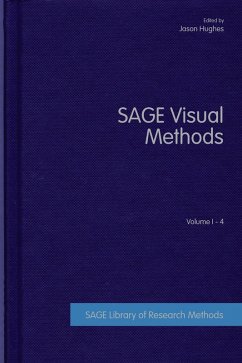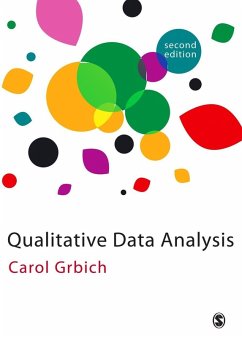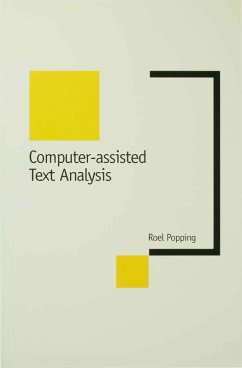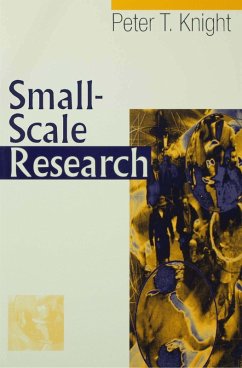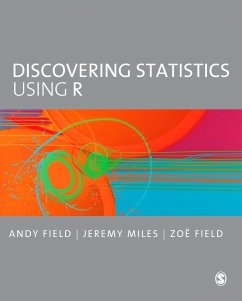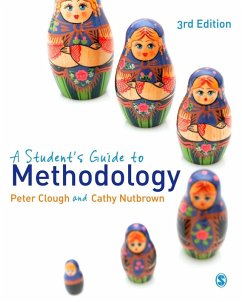
SAGE Secondary Data Analysis (eBook, PDF)

PAYBACK Punkte
396 °P sammeln!
One central and enduring image of the social science researcher is of an individual who commits a great deal of time to collecting original, primary data from a field of enquiry. This approach is often underpinned by a sincerely held belief that key research questions can only be explored by the collection of ever new, and ever greater amounts of data, or that already existing data are insufficient for researchers to test their ideas. Yet such an approach to social science research can be problematic not least because the collection of primary data can be an expensive, time-consuming, and even...
One central and enduring image of the social science researcher is of an individual who commits a great deal of time to collecting original, primary data from a field of enquiry. This approach is often underpinned by a sincerely held belief that key research questions can only be explored by the collection of ever new, and ever greater amounts of data, or that already existing data are insufficient for researchers to test their ideas. Yet such an approach to social science research can be problematic not least because the collection of primary data can be an expensive, time-consuming, and even wasteful approach to social enquiry.
Secondary analysis can serve many purposes, as well as being a valid approach in its own right. However, despite its widespread application, secondary analysis is often undervalued or perceived to be the preserve of only those interested in the re-use of large-scale survey data.
Highlighting both the theory and practice of secondary analysis and the use of secondary sources, this collection considers the nature of secondary analysis as a research tool; reflects on the definitional debates surrounding terms such as secondary analysis, data re-use and restudies; illustrates how secondary analysis is used in social science research; and finally reviews the practical, methodological and ethical aspects of secondary analysis.
Volume One: Using Secondary Sources and Secondary Analysis
Volume Two: Quantitative Approaches to Secondary Analysis
Volume Three: Qualitative Data and Research in Secondary Analysis
Volume Four: Ethical, Methodological and Practical Issues in Secondary Analysis
Secondary analysis can serve many purposes, as well as being a valid approach in its own right. However, despite its widespread application, secondary analysis is often undervalued or perceived to be the preserve of only those interested in the re-use of large-scale survey data.
Highlighting both the theory and practice of secondary analysis and the use of secondary sources, this collection considers the nature of secondary analysis as a research tool; reflects on the definitional debates surrounding terms such as secondary analysis, data re-use and restudies; illustrates how secondary analysis is used in social science research; and finally reviews the practical, methodological and ethical aspects of secondary analysis.
Volume One: Using Secondary Sources and Secondary Analysis
Volume Two: Quantitative Approaches to Secondary Analysis
Volume Three: Qualitative Data and Research in Secondary Analysis
Volume Four: Ethical, Methodological and Practical Issues in Secondary Analysis
Dieser Download kann aus rechtlichen Gründen nur mit Rechnungsadresse in A, D ausgeliefert werden.




